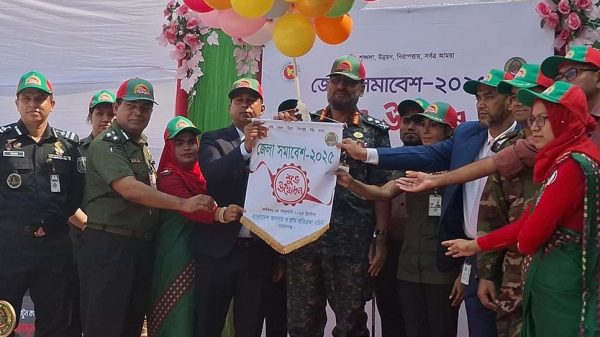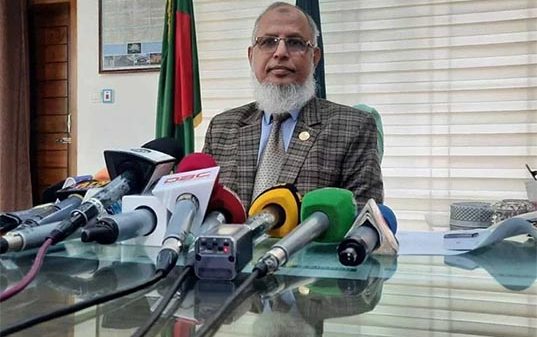CPD for efficient regional trade deals to tap Bay of Bengal trade potentials

- Update Time : Sunday, 10 March, 2024, 06:49 pm
- 77 Time View

Online Desk: Centre for Policy Dialogue (CPD) today laid emphasis on establishing trading partnerships through efficient Regional Trade Agreements (RTAs) to take advantage of market opportunities and trade potential in neighbouring countries centring the Bay of Bengal.
The think tank made the observation at a seminar on “Multi-layered Connectivity in the Bay of Bengal: Positioning Bangladesh as a Regional Economic Hub”.
CPD, in cooperation with the Embassy of Japan in Bangladesh, organised the seminar at the embassy premise in the city.
The seminar had an inaugural session, five distinctive sessions concerning multi-layered connectivity and a closing session.
At the seminar, State Minister for Commerce Ahasanul Islam Titu emphasised the importance of exploring new markets and regional trade post-graduation.
He highlighted efforts to enhance infrastructure, including plans for paperless documentation in ports with support from Singapore, aimed at reducing processing times.
Acknowledging India as a key trading partner, the State Minister also underscored the significance of India’s partnership in ensuring food security for Bangladesh.
In her welcome remarks, CPD Executive Director Dr Fahmida Khatun said updating and diversifying industries is urgent, requiring action not only at the individual country level but also on a regional scale.
“We believe no region can prosper without connectivity. The Association of Southeast Asian Nations (ASEAN) and the European Union are the best examples of how to utilise potential through connectivity. But our region is not that integrated in trade as we could not unlock the potentials,” she added.
She mentioned that Bangladesh’s unique geographical location is an asset.
As the keynote presenter, Research Fellow of CPD Syed Yusuf Saadat, said, “Efficient RTAs include standard preferential tariff structure, rules of origin, smooth supply chain operation, trade facilitation across borders, digital trade process, and strong dispute resolution mechanism”.
He talked about the trade’s untapped potentials centring the Bay of Bengal for countries including Bangladesh, North East India, Nepal and Bhutan.
The Chief Country Representative of Japan External Trade Organization (JETRO) Yuji Ando said that the perspective of Japanese companies in Bangladesh is shaped by various factors, as highlighted in JETRO’s annual survey.
While there is significant interest in investing in Bangladesh, with 61 per cent of Japanese companies expressing intent over the next 1 to 2 years, this figure has decreased by 10 percentage points compared to the previous year, he added.
Despite investment opportunities, he said, India holds certain advantages over Bangladesh.
Challenges include the development of value chains between Bangladesh and India, as well as issues related to infrastructure development and mutual access for vehicles, he added.
However, Yuji Ando said, initiatives such as the bilateral Comprehensive Economic Partnership Agreement (CECPA) and the development of the Matarbari deep-sea port are expected to enhance connectivity and facilitate trade.
High-level policymakers, diplomats, foreign delegates, researchers, development practitioners, academics, business leaders, civil society representatives, international development partners, and journalists participated in the seminar.










